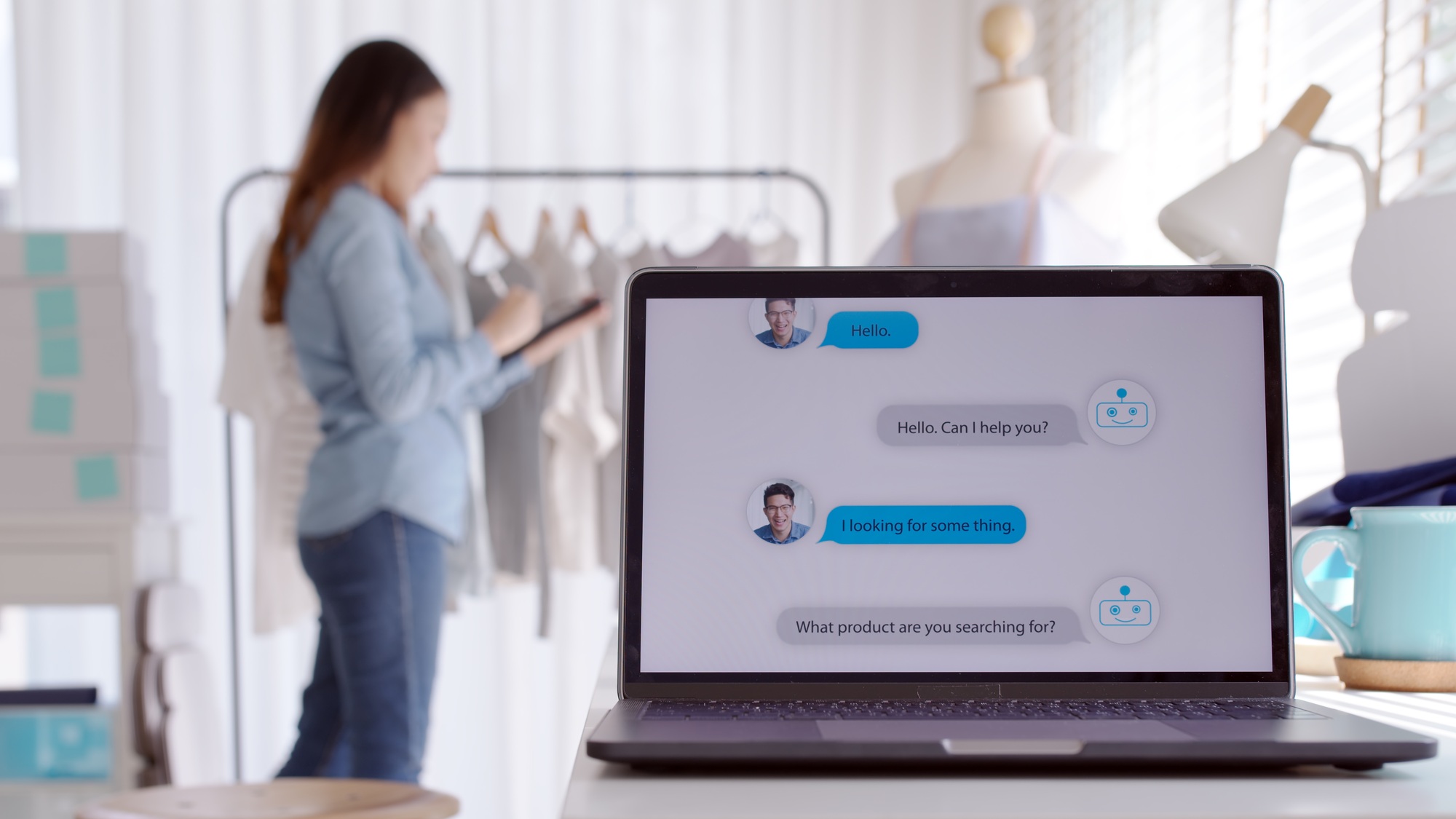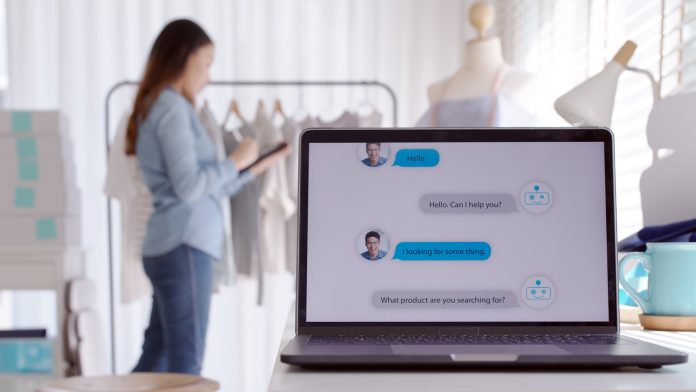Key Takeaways

- Definition and Purpose: A chatbot is a software application that simulates human conversation to provide customer support, facilitate transactions, and answer questions, enhancing user interaction.
- Types of Chatbots: There are two main types: rule-based chatbots handle simple tasks with predefined scripts, while AI-powered chatbots leverage machine learning and natural language processing for more complex interactions.
- Functionality and Learning: Chatbots use natural language processing to understand user intent and machine learning to improve responses over time, fostering personalized and more human-like interactions.
- Business Benefits: Implementing chatbots improves customer service efficiency, offering 24/7 support and quick responses, which leads to higher customer satisfaction and operational cost savings.
- Potential Challenges: Businesses must address challenges such as understanding user intent and handling complex queries to ensure effective chatbot implementation and maintain a positive user experience.
In today’s digital landscape, chatbots have become essential tools for businesses and users alike. These intelligent programs simulate human conversation, providing instant responses and assistance around the clock. Whether you’re seeking customer support or just curious about a product, chatbots are often your first point of contact, making interactions seamless and efficient.
Understanding what a chatbot is can transform how you engage with technology. They’re not just simple scripts; advanced chatbots leverage artificial intelligence to learn from interactions, improving their responses over time. As you explore the world of chatbots, you’ll discover how they’re reshaping customer service, enhancing user experiences, and driving innovation across various industries.
What Is a Chatbot

A chatbot is a software application that simulates human conversation through text or voice interactions. These tools serve various purposes, from providing customer support to facilitating transactions and answering FAQs. Chatbots operate on artificial intelligence (AI), enabling them to understand user queries and respond accurately.
For small businesses, chatbots improve customer communication without significant overhead costs. You can deploy chatbots on your website or social media platforms, offering instant assistance to your customers around the clock.
Modern chatbots leverage advanced technology to learn and adapt based on user interactions. They analyze previous conversations to enhance their responses, ultimately delivering a personalized experience. This capability allows you to maintain consistent customer engagement while freeing up your team to focus on complex tasks.
Utilizing chatbots also helps in data collection. These tools gather insights on customer preferences and behaviors, aiding your business strategy. By integrating chatbots into your operations, you enhance efficiency and improve overall customer satisfaction.
Types of Chatbots

Chatbots come in various forms, each designed to enhance user interaction and deliver specific functionalities. Understanding these types helps you choose the right solution for your small business.
Rule-Based Chatbots
Rule-based chatbots follow predefined paths and interact based on scripted rules. They work effectively for straightforward tasks, such as answering frequently asked questions or guiding users through a process. You set the rules, and the chatbot responds accordingly. These bots offer a cost-effective option for small businesses seeking basic automation without requiring advanced technology. However, they may struggle with complex queries or unexpected user input.
AI-Powered Chatbots
AI-powered chatbots utilize advanced technology, like natural language processing (NLP) and machine learning algorithms, to understand and respond to user queries more intuitively. They learn from interactions, improving over time. For small businesses, AI-powered chatbots can provide personalized support and adapt to customer preferences, making interactions more engaging. These bots excel in dynamic environments where user needs vary significantly, allowing businesses to streamline customer support and enhance user experiences.
How Chatbots Work

Chatbots operate using a mix of technologies that enable them to understand and respond to user queries effectively. For small businesses, leveraging chatbots can enhance customer interactions and streamline support processes.
Natural Language Processing
Natural Language Processing (NLP) allows chatbots to interpret and analyze human language. It enables your chatbot to understand context, sentiment, and intent behind user messages. By utilizing NLP, your chatbot can engage customers in a more natural way, allowing for meaningful conversations. This technology helps your business provide personalized responses, making interactions feel less robotic and more human-like.
Machine Learning
Machine learning equips chatbots with the ability to learn and improve over time. By analyzing past conversations, your chatbot can recognize patterns and predict user needs. This technology adapts responses based on previous interactions, enabling your chatbot to offer more relevant assistance. For small businesses, employing machine learning in chatbots means higher customer satisfaction and reduced response times, freeing up your resources for more complex tasks.
Benefits of Using Chatbots

Chatbots offer significant advantages for small businesses, enhancing customer interactions and optimizing operational efficiency. Implementing chatbots streamlines your processes, ensuring customer satisfaction and cost-effectiveness.
Improved Customer Service
Chatbots provide 24/7 availability, giving immediate support to customers regardless of the time zone. This constant presence ensures that customers receive assistance whenever they need it. Chatbots also deliver quick responses, allowing you to engage with thousands of customers simultaneously. Enhanced first contact resolution (FCR) rates lead to reduced wait times and improved overall satisfaction. For small businesses, using chatbots can streamline communication without overwhelming staff, allowing for consistent and quality customer service.
Cost Efficiency
Integrating chatbots into your business model results in significant cost savings. Rather than hiring additional staff for customer support, chatbots can handle routine inquiries and transactions, freeing up human resources for more complex tasks. The technology behind chatbots is increasingly accessible, allowing small businesses to implement effective customer service solutions without high overhead costs. Improved efficiency leads to better resource allocation, enabling you to focus on growth while maintaining exceptional service standards.
Challenges of Implementing Chatbots

Implementing chatbots presents various challenges for small businesses aiming to enhance customer service through technology. Understanding these obstacles is crucial for effectively deploying chatbots in your operations.
Understanding User Intent
Understanding user intent is critical for effective chatbot interactions. Chatbots must correctly interpret customer inquiries to provide accurate responses. Misinterpretations can lead to frustration, negatively impacting the user experience. Small businesses often face limitations in training chatbots to recognize diverse customer intents. Investing in robust natural language processing (NLP) technology helps improve this aspect. By leveraging advanced NLP, you can enhance your chatbot’s ability to understand different phrases, slang, and context, making interactions smoother and more efficient.
Handling Complex Queries
Handling complex queries poses another significant challenge. While rule-based chatbots manage straightforward tasks, advanced AI-powered chatbots excel in addressing intricate questions. Small businesses often experience overwhelm when customers ask questions beyond the chatbot’s programmed capabilities. Utilizing machine learning allows your chatbot to learn from past interactions, continuously improving its ability to resolve complex inquiries. By integrating technology that supports machine learning, you can create a dynamic support system that adapts to your customers’ evolving needs, ensuring consistent and effective service.
Conclusion

Chatbots are revolutionizing the way businesses interact with customers. By providing instant support and personalized experiences they enhance efficiency and satisfaction. As you consider implementing a chatbot for your business remember the balance between cost-effectiveness and the ability to handle complex queries.
Investing in the right technology can lead to significant improvements in customer service and engagement. With the right chatbot solution you can streamline operations and focus your resources on more complex tasks. Embracing this technology not only keeps you competitive but also positions your business for future growth in an increasingly digital world.
Frequently Asked Questions

What are chatbots?
Chatbots are software applications designed to simulate human conversation through text or voice interactions. They assist users by providing instant support, answering questions, and facilitating transactions, making online interactions more efficient.
How do chatbots help businesses?
Chatbots enhance customer service by offering 24/7 support, quick responses, and personalized interactions. They help streamline communication, reduce operational costs, and allow human staff to focus on more complex tasks, improving overall efficiency.
What types of chatbots are there?
There are two main types of chatbots: rule-based and AI-powered. Rule-based chatbots follow predefined paths for simple tasks, while AI-powered chatbots use natural language processing and machine learning for more intuitive responses and personalized experiences.
How do chatbots work?
Chatbots work by leveraging technologies like natural language processing (NLP) and machine learning. NLP helps them understand human language and context, while machine learning allows them to learn from past interactions, improving their responses and customer engagement over time.
What are the benefits of using chatbots for small businesses?
For small businesses, chatbots provide cost-effective customer service solutions. They enhance customer satisfaction with instant responses, 24/7 availability, and efficient communication, all while allowing human staff to focus on more complex tasks.
What challenges do small businesses face with chatbots?
Small businesses may struggle with understanding user intent and handling complex queries. Misinterpretations can frustrate users, so investing in robust NLP technology is essential for improving chatbot performance and ensuring effective support.
Image Via Envato: Real_life_Studio, vanenunes, rfaizal707, kckate16, Prostock-studio, DC_Studio, KaikaTaaK, AndersonPiza



